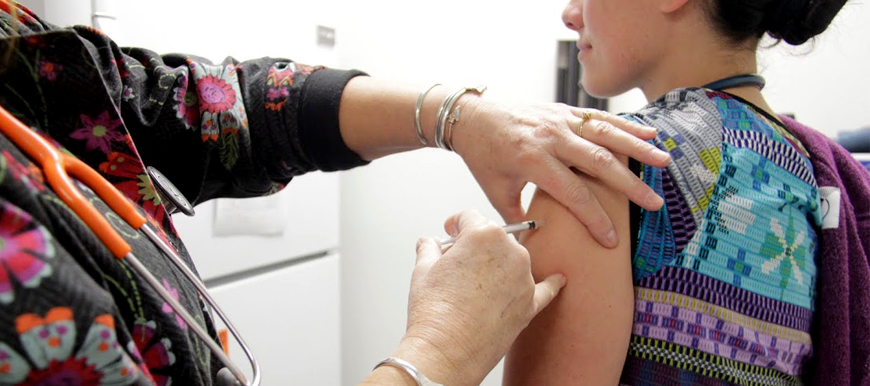Students skip the flu shot
Though college students are among some of the most technologically-advanced and socially-active demographics, they continue to fail in one aspect of social awareness: their own health.
Flu vaccinations are more available than ever before, yet, according to some professionals, students are not getting them.
A recent study by Dr. Janet Yang at the University of Buffalo in New York showed that only 8 percent of college students received the influenza vaccine in 2012. Yang also said college students are at a higher risk than other age groups because of the “high-density living environment” of most college campuses.
There are several reasons students don’t get vaccinated. Some think vaccinations are costly or their insurance wont cover it. Others believe getting the vaccine will actually increase their chance of getting the flu. Some students even believe that the flu vaccine, like chicken pox, is something you only get once in your life.
“They are injecting the flu into you. There’s always slight possibility that you might get it,” said Makynzie Turner, a junior who has only had one flu shot.
There are many misconceptions about the flu vaccine, and Turner’s comments represent a popular one. Students think that getting a vaccine will actually give them the flu. Doctors, however, disagree.
“It’s impossible to get the flu from the injected vaccine. The opposite is true from the nasal spray,” said Dr. James Davis, executive director of the Student Health and Wellness Center. “Nasal spray is a live virus, so it gives you a mild case of the flu. Injection is flu virus fragments — not enough to give you the flu.”
Another concern of students is the money. Flu shots can cost anywhere from $15 to $50, and students are often unaware of what they will pay when they go into the doctor’s office. Davis also addressed that concern.
“If your insurance covers the vaccine as part of preemptive services, you won’t pay anything out-of-pocket,” he said.
Customers are always encouraged to call their insurance and make sure that services are covered before they have any procedure, but most insurances will cover vaccines as part of preventative services.
If a student does not have insurance or active preventative coverage, the Student Health and Wellness center charges $19 for the injected vaccine. By comparison, the Intermountain Healthcare clinics charge $47 for the injection and will sometimes charge an office visit in addition.
Getting flu shots can also prevent the spread of the virus. Lisa Perkins, influenza program coordinator of the Bear River Health Department, said not getting the flu vaccine increases your chance of not only contracting the flu but also spreading it through social interaction.
“Especially with college students, they’re around a lot of other people in classrooms, so they have a lot of exposure in the school system and with their living situations,” Perkins said.
Most medical experts agree that getting vaccinated is the best way to prevent yourself from getting the flu. Perkins shared her personal philosophy.
“I’ve never missed one,” Perkins said, “and I think if you talk to someone who has actually gotten influenza, it’s the worst seven to 10 days of their life.”
— cody.scott@usu.edu
—manda.perkins@hotmail.com

